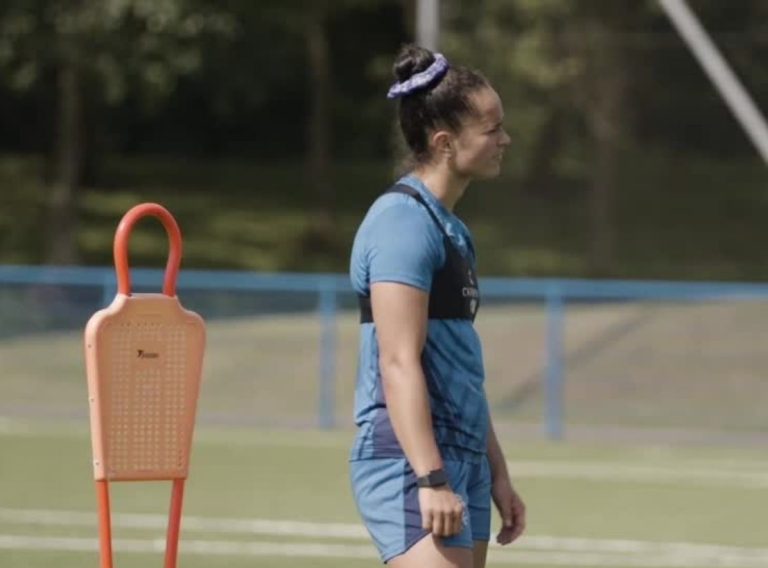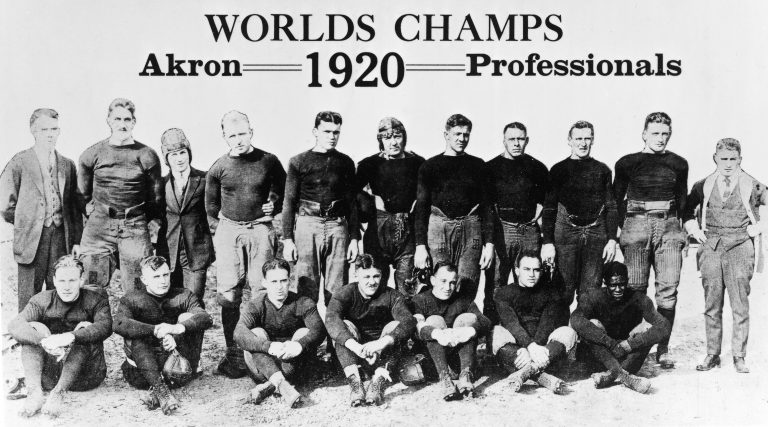Article
Three Levels of Pain While on Injured Reserve
No matter the level, injured athletes face a unique set of challenges
Reid S. Monaghan
Over the past week our entire family has been hurting a bit after our oldest daughter suffered a devastating injury on the soccer pitch.
After a feet-first tackle by the opposing goal keeper she was left with a tibial-fibular fracture and a level of physical trauma that was quite shocking. With the excellent work of a top surgeon along with a fantastic titanium nail from Smith and Nephew, the team has put our girl back together again.
Though the road to full recovery is long, we are now taking the first steps of that journey.
But the injury has me thinking about and meditating on the nature of pain on three different levels. One form of pain we will all be familiar with, as it happens to the body, but there is a pain that goes beyond the pain that every injured athlete understands.
PHYSICAL
First and most obvious is the physical pain of having your leg bones crunched in the storm of a violent collision. We have good meds for that in 2016 but the physical pain is still a shocking and present reality.
Furthermore, as bone breaks go, the larger the bone the more painful when it breaks. The femur is supposedly #1 (do follow that link if you need a laugh) and the tibia is a close #2. It’s hard to watch someone you love go through such things.
Yet there is a pain of a another kind that rapidly descends upon an athlete in the aftermath of injury. It arrives along several tracks related to loss and uncertainty.
LOSS
Many high level athletes have literally played their sport for almost the entirety of their lives. Though only 14, our daughter has literally played the game of football in an organized fashion for two thirds of her life.
If you add in kicking balls around from a very young age, soccer has been a part of her story as long as she has had memories. When a leg breaks, part of your story breaks suddenly as well.
The regular training sessions, the games, the travel, the tournaments and the constant presence of teammates all comes to a sudden and grinding halt. It’s almost as if part of you is suddenly gone. The loss is painful and the physical pain that lingers reminds you of the loss.
It’s no wonder that when an athlete is seriously injured, teammates rally to the player. The empathy and understanding surrounding the loss is understood.
UNCERTAINTY
Along with the quick realization of loss another fear visits the soul—doubt and uncertainty about the future. Life is suddenly changed. You cannot walk on your own. Sleeping is difficult and you have to get to the bathroom over and over and over again.
With such sudden change you also begin to ask the questions: Can I come back from this? How long will it take? Will I be my old self? Will I come back better? What about my future dreams for the game? Are those in jeopardy? Who am I, really, apart from these things I do?
The specter of uncertainty does not wait to visit the soul. That deranged spirit just lands upon you without delay. It brings a certain ache to the soul.
My wife and I, both former athletes, also feel these emotions and psychological difficulties vicariously because we have walked in these difficult shoes. The memory of losing my final year of collegiate wrestling to a labrum tear in my shoulder comes rushing back even now.
As parents, watching the physical pain and knowing the challenges of soul my girl faces just breaks my fatherly heart.
This is why lifting weights in the gym should not be considered play. When a person chooses to go to the gym and lift, they most likely engage in this activity to improve their muscle mass, stay healthy, or train for a sport. This motivation serves as an external goal that the person is trying to achieve. It doesn’t mean we can’t enjoy this type of activity—it’s just not play.
Our play may have benefits outside itself, but in its purest sense we do not approach it expecting anything in return.
Revelation 4:11 says, “You are worthy, our Lord and God, to receive glory and honor and power, for you created all things, and by your will they existed and were created.” The author doesn’t mention God should be worshipped because of what God will do for us or how God will benefit our lives, but because of who God is.
When we approach our worship asking how it will benefit our personal lives, our worship becomes more about ourselves than God.
We worship God because of who God is, not what we “get” out of it.
Just like play, while we may benefit from our worship of God, it is not—or at least should not be—why we worship the Creator.
"She has a great benefit of the constant grace and care of a good, good Father, who promises His presence in the midst of suffering."
THE ANCHOR OF GOD’S PROMISES
Besides facing all of these issues like everyone else, the Christian athlete might also have to struggle with some theological questions related to providence and the sovereignty of God. While I hate for my daughter to suffer, she also has the great benefit of having her identity in Christ.
She has a great benefit of the constant grace and care of a good, good Father, who promises His presence in the midst of suffering.
She has a present help in the time of trouble and a strength to face fear. (Psalm 46).
She has the great Helper and High Priest walking with her in her deepest times of need. (John 14:25-27; Hebrews 4:14-16)
She has the church family to encourage her along the way (John 13:34,35; 1 Thessalonians 5:9-11).
She knows He is always with her to strengthen her heart (Isaiah 43:1-11; John 16:33; Hebrews 13:20,21).
She has opportunity to grasp the knowledge and live in the contentment that “I can do all things through Christ who strengthens me.” (Philippians 4:13, a situation appropriately applied to sport)
Youth sports is a great field for both mission and the gospel—it is also a great arena for life change and sanctification. If you’re a believer, there are different things we have access to as we travel through various levels of suffering.
Though we prefer God to give us easier roads, we can be sure that God will use these painful paths to transform our lives.
John 14:25-27
“These things I have spoken to you while I am still with you. But the Helper, the Holy Spirit, whom the Father will send in my name, he will teach you all things and bring to your remembrance all that I have said to you. Peace I leave with you; my peace I give to you. Not as the world gives do I give to you. Let not your hearts be troubled, neither let them be afraid.
HELP REDEEM THE CULTURE OF YOUTH SPORTS.
Subscribe to our newsletter
get ministry resources
READ THE LATEST FOR ATHLETES
Where sport culture, relationships, character, identity, and faith collide.



